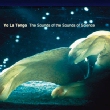|
|

Yo La Tengo If you pick up an album by Yo La Tengo from 1992's May I Sing With Me onwards, you can pretty much guarantee that there will be genius contained within. (I know I throw the term 'genius' around frequently, but bear with me on this one...) However, it wasn't until 1997's I Can Hear The Heart Beating As One and 2000's And Then Nothing Turned Itself Out that you could seriously state that Yo La Tengo could sustain their genius over the course of an hour or more (Yo La Tengo's albums are very long, very involving, and very moving). It's amazing to think that the music you are hearing is just created by three people from Hoboken, New Jersey. Not that Hoboken isn't a place that emanates great music - after all, Frank Sinatra hailed from there - just that it's impossible to imagine that only three individuals together can create such a depth of sound. Ira Kaplan, wife Georgia Hubley, and James McNew are staggeringly inventive musicians in their own right, but as Yo La Tengo they become the embodiment of the perfect band dynamic that characterised so many of the mythical Sixties bands such as The Beatles, The Beach Boys and The Velvet Underground. However, the perfect band is rarely characterised by such an inclusive, loving feeling; of coaxing sounds from some warm aether-world where music exists rather than is simply created. It is this quality of exuding warmth and depth of emotion through music that Yo La Tengo excel. Their latest album The Sounds Of the Sounds of Science was created as an instrumental soundtrack to the underwater moving pictures of French filmmaker Jean Painlevé. Hearing the music within this context, but without the visual stimulus of Painlevé's no-doubt-beautiful submarine films, is to do it an immediate injustice. Which is what I did hearing this album the first few times. As soon as you allow your mind to stop imagining the visuals that the music accompanies it really comes alive - living, breathing and gliding like the jellyfish, octopus and seahorse on the screen. Opener "Sea Urchins" is immediately characterised by the Yo La Tengo hallmarks of tight complex drumming, washes of bass and organ, and occasional punctuations of blissful, yearning guitar. Another part of the magic is trying to fathom which of the three multi-instrumental band members is playing that particular part: is it Georgia, with her sweet, plaintive, occasionally cryptic style; Ira with his melodic stability and then sudden, irrational bursts of corruscating noise; or perhaps James, with his rock-solid timekeeping, empathetic accompaniments, and sad, longing chords? Once you allow yourself to accept that the music is transcendentally beautiful, you understand. It is difficult to actually further describe the virtues of individual moments or songs as the parts are subsumed so subtly and gorgeously by the whole. All there is to say is that this album could only have been made by one band. The sublime Yo La Tengo. Copyright © 2002 Tim Clarke
|
| You may also want to check out our Yo La Tengo articles/reviews: And Then Nothing Turned Itself Inside-Out, Fade, I Am Not Afraid Of You And I Will Beat Your Ass, I Can Hear The Heart Beating As One, John Dee, Oslo, Norway, 02.11.06, Popular Songs, Prisoners of Love: A Smattering of Scintillating Senescent Songs 1985-2003, Stuff Like That There, Stupid Things EP, Summer Sun, You Can Have It All b/w Ready-Mades. |
| © 2011 Luna Kafé |